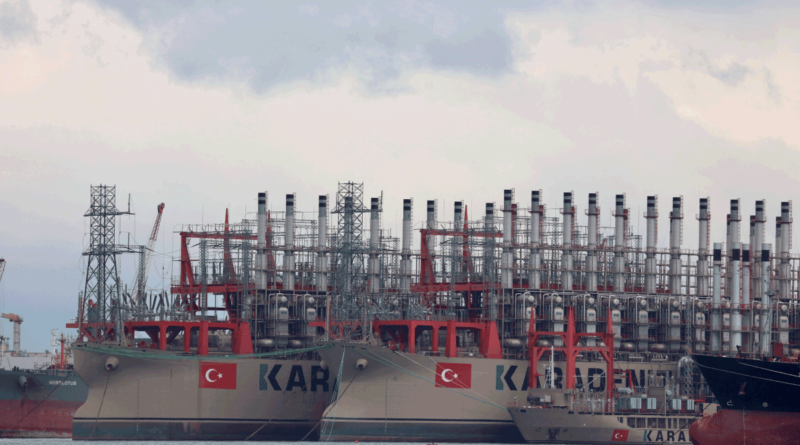Blackout in Sierra Leone: Electricity supply halts over debt
According to the nation’s energy minister, Freetown, the capital of Sierra Leone, is facing electricity shortages as a result of Türkiye’s Karpowership cutting off its power supply due to an unpaid debt of over $40 million.
Reuters was informed by Minister Kanja Sesay that the unpaid balance “was accrued over time because the government subsidizes more than half the cost the ship charges per kilowatt hour.”
He claimed that because it pays the electricity supplier in the weak native Leone currency, one of the worst performing against the dollar, and charges users in that same currency, the government had to spend more on the subsidies.

A government commission has been established to investigate potential price increases in consumer electricity rates.
As a member of the Karadeniz Energy Group and one of the leading operators of floating power plants worldwide, Karpowership secured agreements in 2018 and 2020 to supply electricity to Sierra Leone’s national power company.
Similar agreements were signed by the corporation with numerous electricity-short African nations.
Karpowership was unavailable for comment.
According to the company’s website, it has provided 80% of Sierra Leone’s entire electricity demands since 2020 by deploying about 65 megawatts (mW) of power-producing capacity there.
According to Sesay, Karpowership’s switch-off restricted the capital’s access to electricity by 13%. In the capital, families and businesses increasingly experience regular power outages lasting several hours.
The country’s hydroelectric dam and electricity from a connection with Ivory Coast, which also serves Guinea and Liberia, make up the other two sources of power for the city. Karpower is one of these sources.
According to Sesay, the demand for Karpower supply is greatest during the dry season when the dam’s water levels are low. During the wet season, dependence on the company declines. Currently, the country is in the height of its May to November rainy season.

